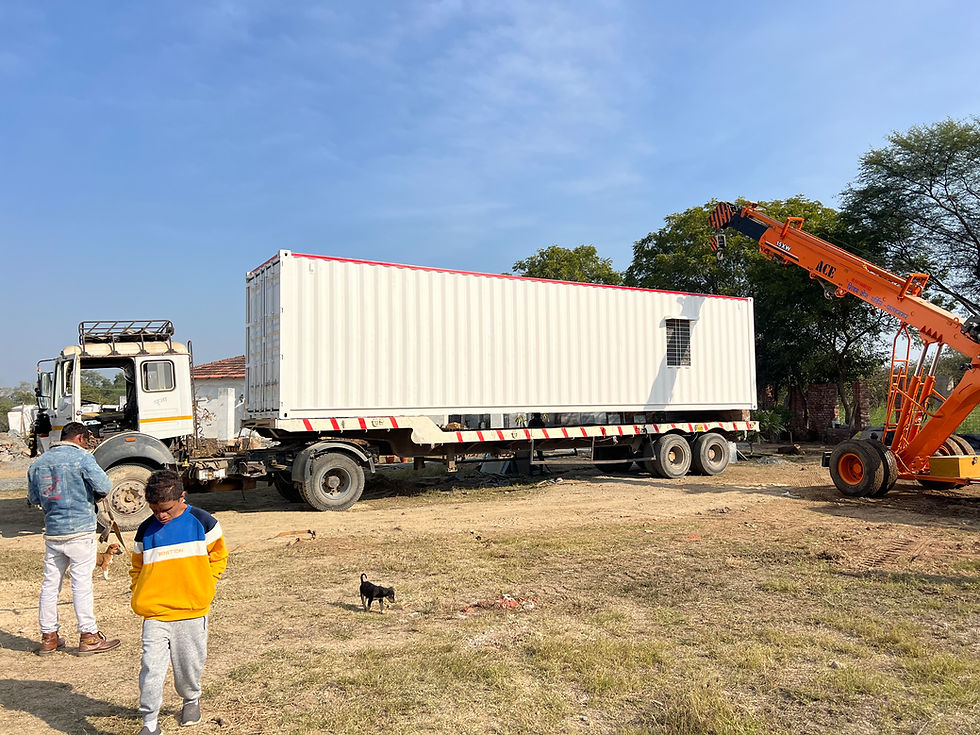A skatepark in Rajasthan became the central location in Netflix's 'Skater Girl' movie.
- DD Editor
- Jul 7, 2021
- 2 min read
Updated: Jul 30, 2021
It's not the usual practice for filmmakers to build sets for a movie and leave it behind permanently, but with Netflix's Skater Girl, the Makijany Sisters decided that if they we're going to make a film about social change what better way than to actually build a skatepark and impact a new community.
Though the story itself is fictional, the filmmakers researched for over a year and were inspired by the skate scene across India to authentically represent the subculture of skateboarding. Several skate communities participated in the film including fifty five skaters from Mumbai, Pune, Bangalore, Janwaar, Delhi, and the Kovalam Skate Club.
At that time of the build, India had around seventeen skateparks with varying types and sizes, but it was clear that communities were being positively impacted.
Building a skatepark is a major undertaking but what made this more challenging was that it was constructed during the monsoon season. The filmmakers partnered with Holystoked and 100 Ramps Construction Co. to assemble an experienced team of skate build crew from as far as Switzerland, Germany, Denmark, France, and across India. Over the course of forty five intense days over eight weeks the team built the park.
The Desert Dolphin Skatepark is a reinforced concrete construction spanning over 14,500 sq.ft. and is situated on a remote one-acre campus. Located in the rural village of Khempur, approximately 40 mins from the spectacular city of Udaipur, the park now runs as a free community skatepark.
During the production of Skater Girl, the skatepark became the centerpiece of the movie and a production base for the cast and crew. The production erected talent dressing rooms, costumes and makeup facilities on site using Swiss tents. Approximately five-hundred cast and crew including over three-hundred-fifty village locals were employed during the making of the movie. Over three-thousand children were auditioned, many of them skaters from skate communities across India. Fifty-five skaters from across India were featured in the movie including thirty-four local skaters from Khempur village.
The filmmakers spent over a year researching, writing and meeting with teenage girls and young boys in Rajasthan using the skatepark as the base to write Prerna and Ankush’s characters as authentically as possible. A resident skate coach was on site over five months training skaters and the local Khempur kids to skate. Acting and theater workshops were conducted on campus.
The challenges the Makijany sisters faced while planning and constructing the Desert Dolphin Skatepark became a part of the inspiration behind Jessica's character.
"No School, No Skating" was first introduced in India at the Kovalam Skate Club as a way to encourage children to attend school. This was later successfully adopted by other skate communities including the Desert Dolphin Skatepark.
Since the film and the Desert Dolphin Skatepark were female lead projects, it was important to the Makijany Sisters to ensure the production of Skater Girl reflected a gender balanced world. As a result of conscious hiring decisions, the film was awarded a ReFrame Stamp, which serves as a mark of distinction for projects that have demonstrated gender-balanced hiring.
Skater Girl was filmed entirely in and around Khempur and surrounding locations in Udaipur. The film completed its post-production between Mumbai, India and Warner Bros. Creative Services, in Burbank, California.
The film is available in over 191 countries on Netflix. Watch Skater Girl on Netflix.





Comments